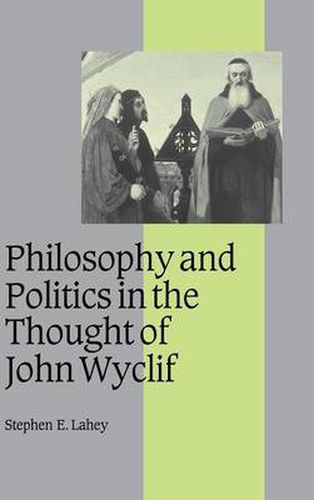Readings Newsletter
Become a Readings Member to make your shopping experience even easier.
Sign in or sign up for free!
You’re not far away from qualifying for FREE standard shipping within Australia
You’ve qualified for FREE standard shipping within Australia
The cart is loading…






John Wyclif was the fourteenth-century English thinker responsible for the first English Bible, and for the Lollard movement which was persecuted widely for its attempts to reform the church through empowerment of the laity. Wyclif had also been an Oxford philosopher, and was in the service of John of Gaunt, the powerful duke of Lancaster. In several of Wyclif’s formal, Latin works he proposed that the king ought to take control of all church property and power in the kingdom - a vision close to what Henry VIII was to realise 150 years later. This book argues that Wyclif’s political programme was based on a coherent philosophical vision ultimately consistent with his other reformative ideas, identifying for the first time a consistency between his realist metaphysics and his political and ecclesiological theory.
$9.00 standard shipping within Australia
FREE standard shipping within Australia for orders over $100.00
Express & International shipping calculated at checkout
John Wyclif was the fourteenth-century English thinker responsible for the first English Bible, and for the Lollard movement which was persecuted widely for its attempts to reform the church through empowerment of the laity. Wyclif had also been an Oxford philosopher, and was in the service of John of Gaunt, the powerful duke of Lancaster. In several of Wyclif’s formal, Latin works he proposed that the king ought to take control of all church property and power in the kingdom - a vision close to what Henry VIII was to realise 150 years later. This book argues that Wyclif’s political programme was based on a coherent philosophical vision ultimately consistent with his other reformative ideas, identifying for the first time a consistency between his realist metaphysics and his political and ecclesiological theory.